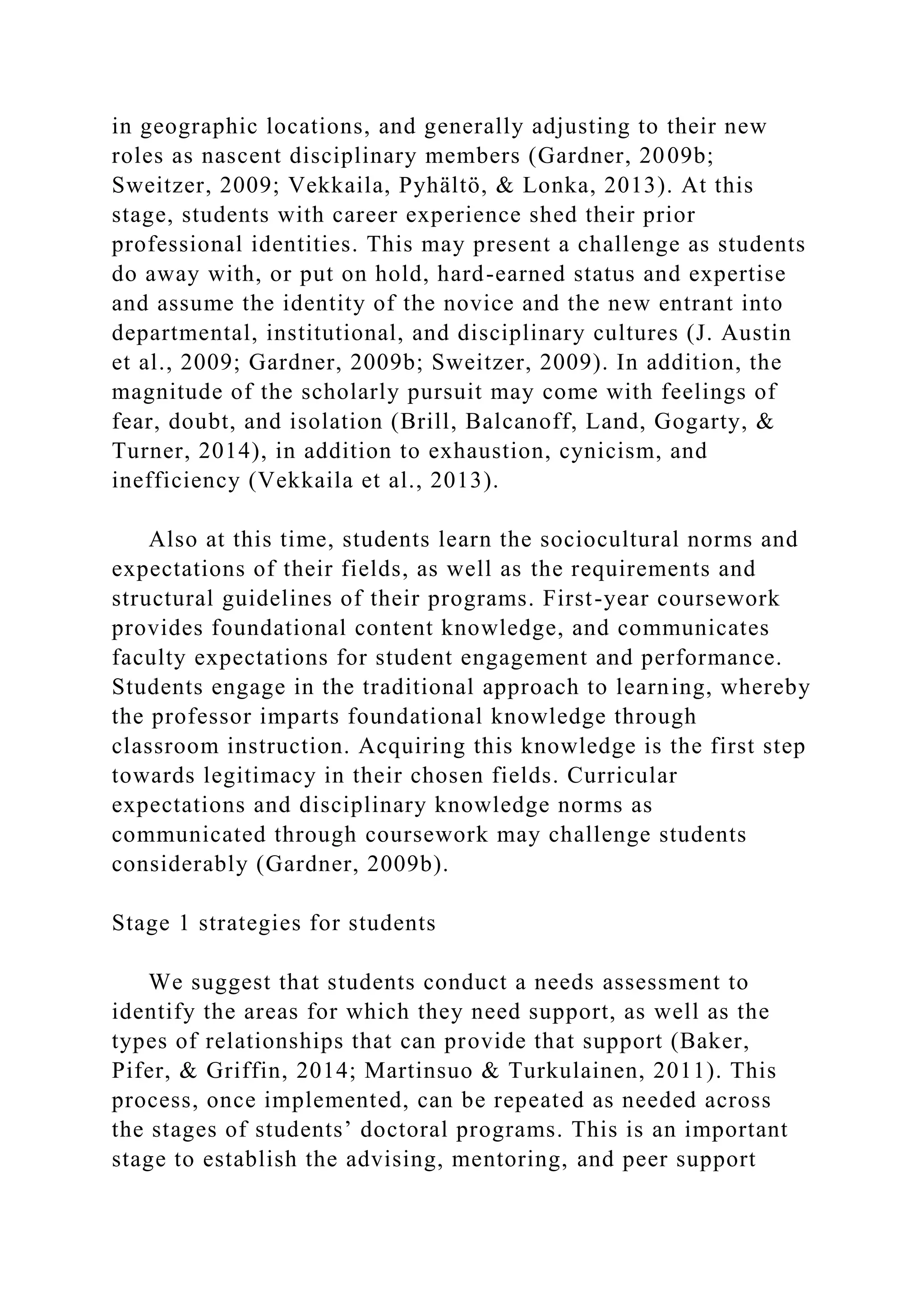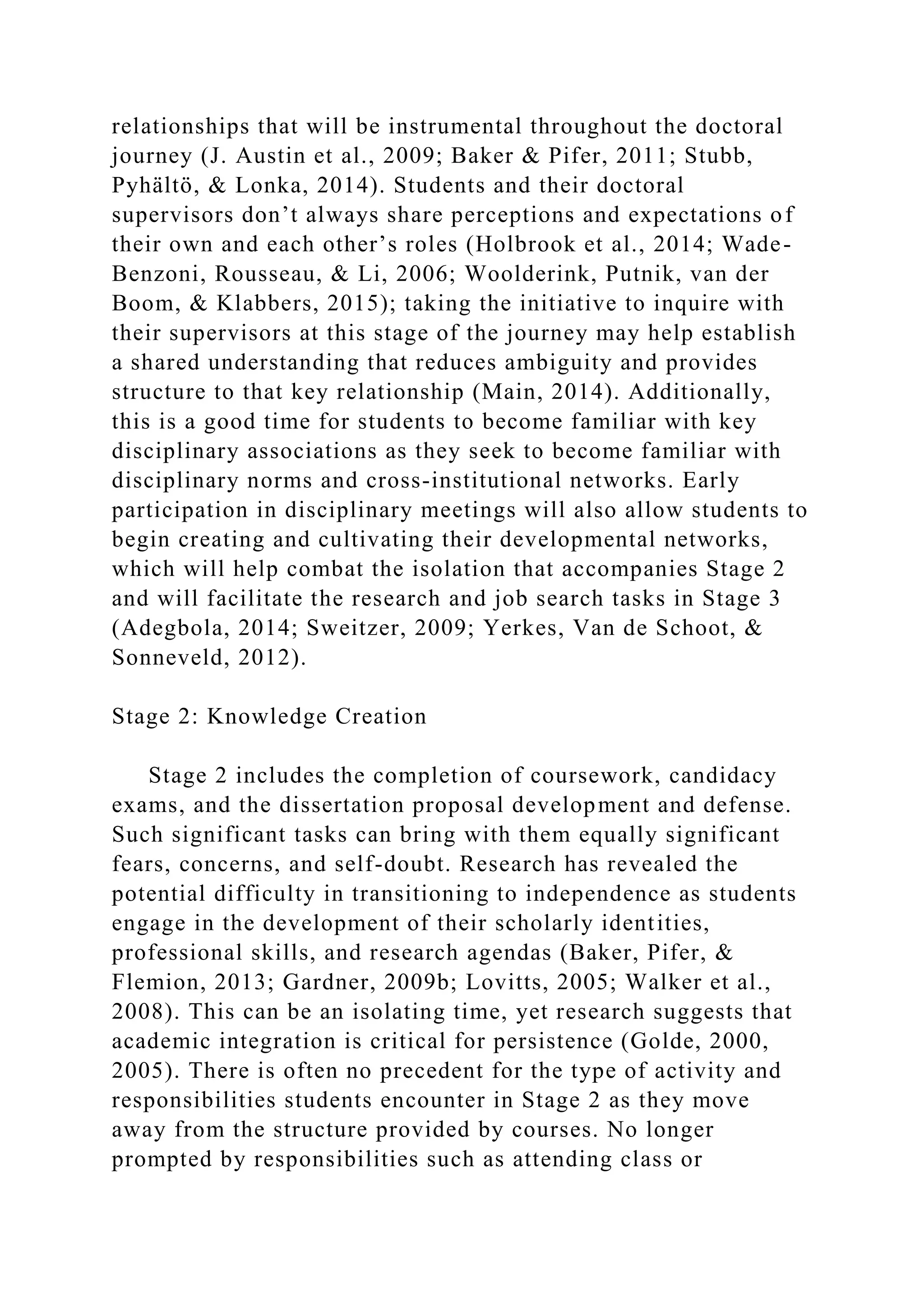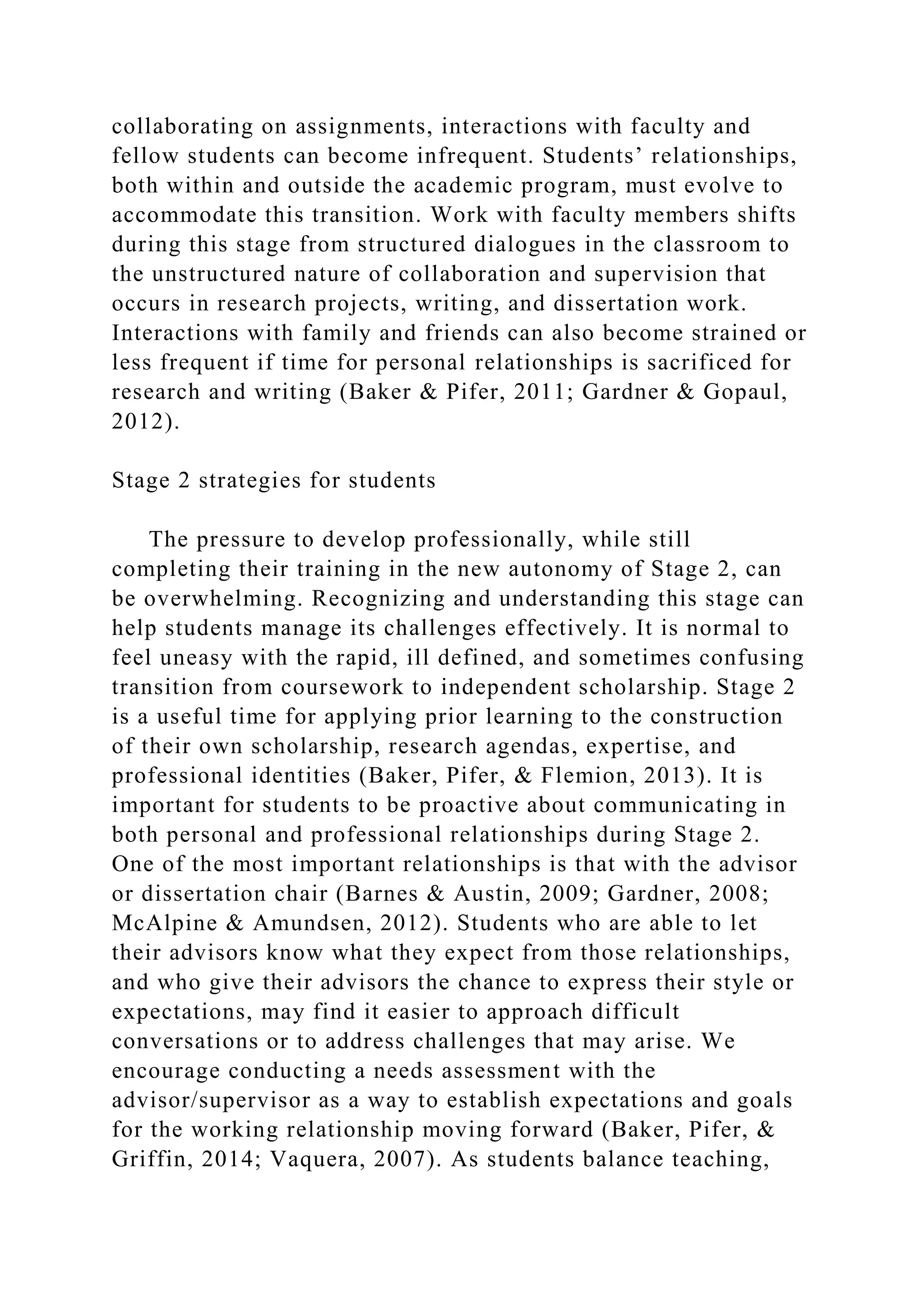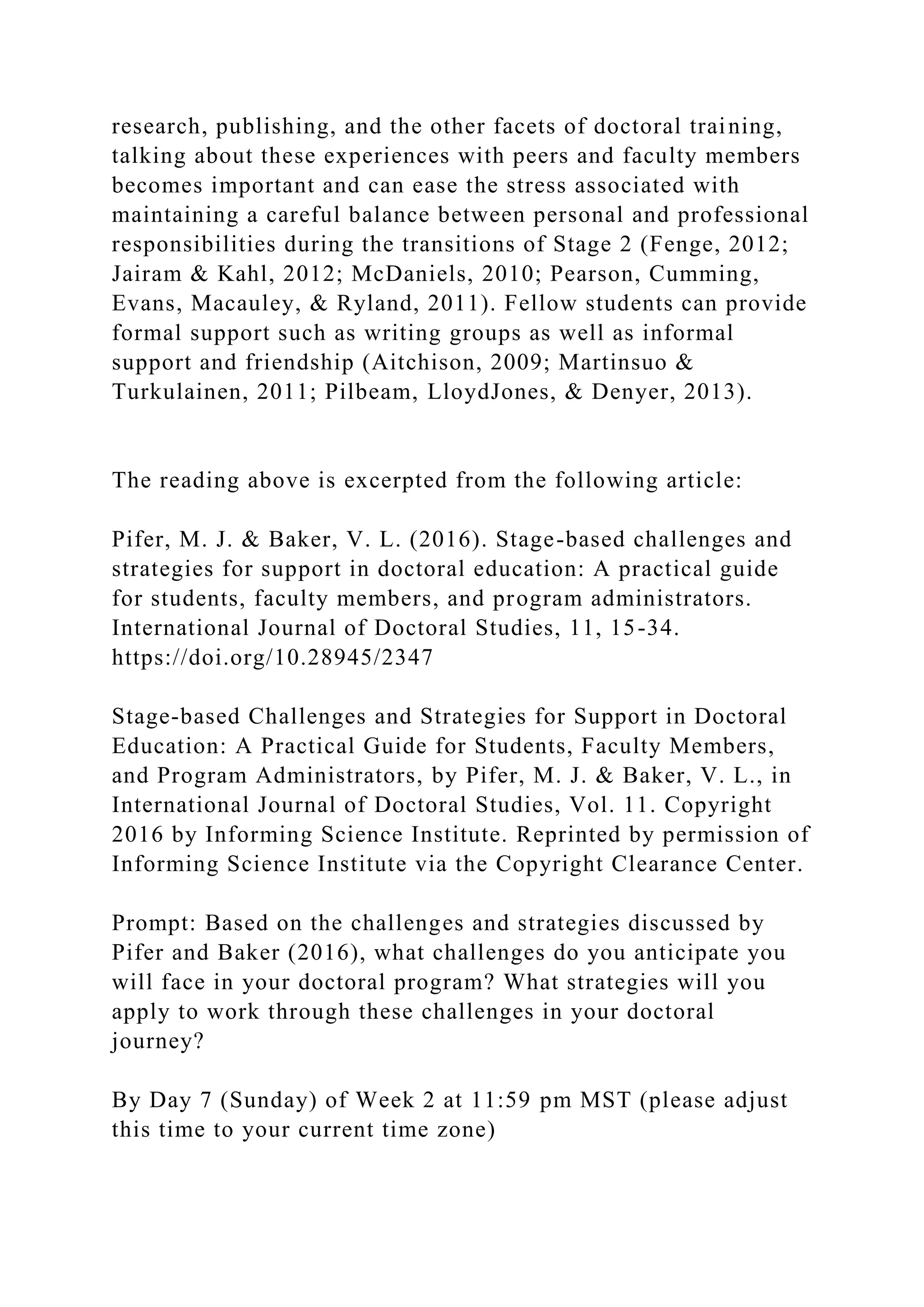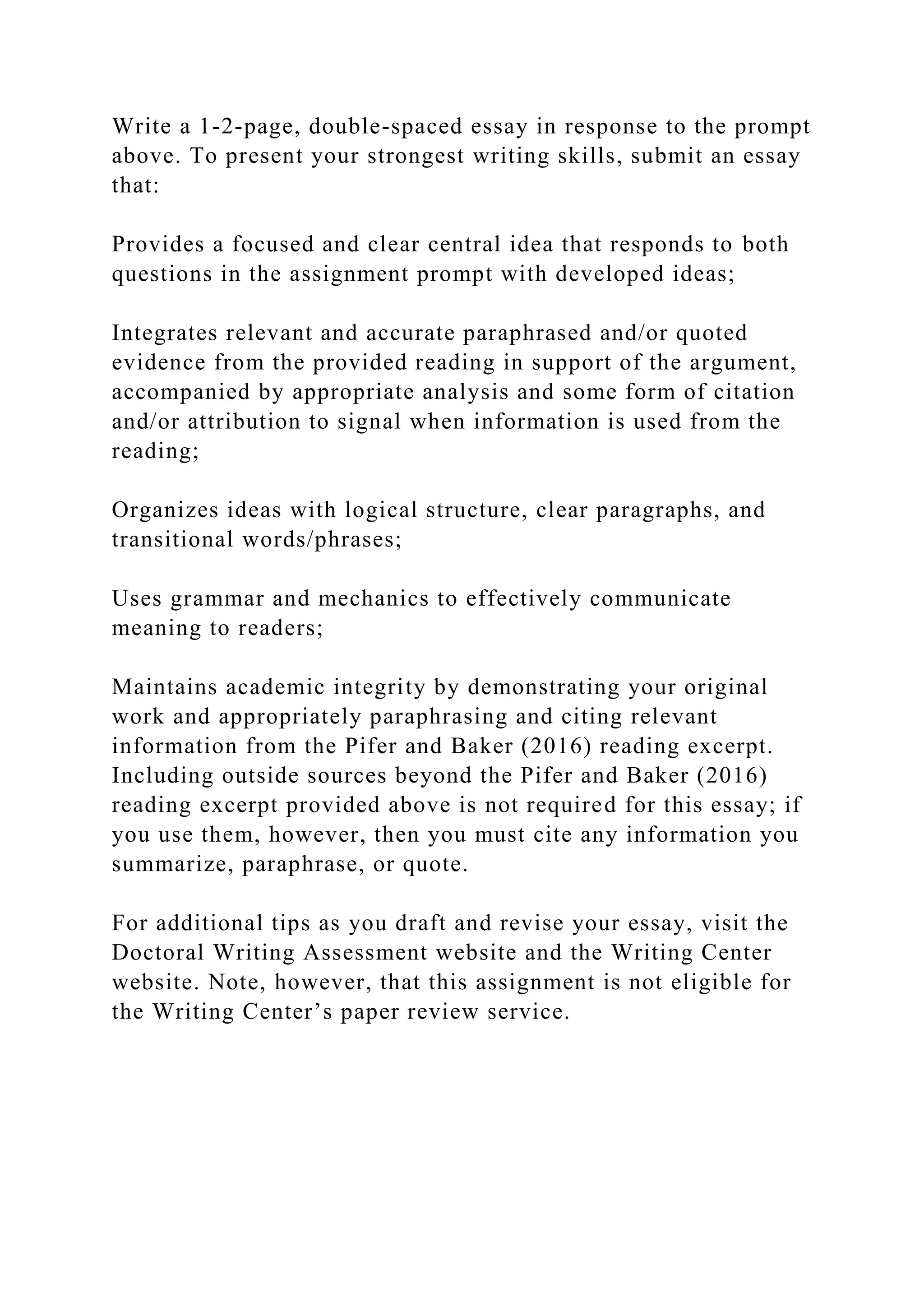The document discusses the stages of doctoral education as outlined by Pifer and Baker (2016), emphasizing the challenges and strategies faced by students in the first two stages: knowledge consumption and knowledge creation. It suggests strategies for overcoming identity shifts, feelings of isolation, and the transition to independence as students develop their scholarly identities. The assignment prompts students to reflect on anticipated challenges in their doctoral journey and the strategies they plan to implement, using insights from the reading.

